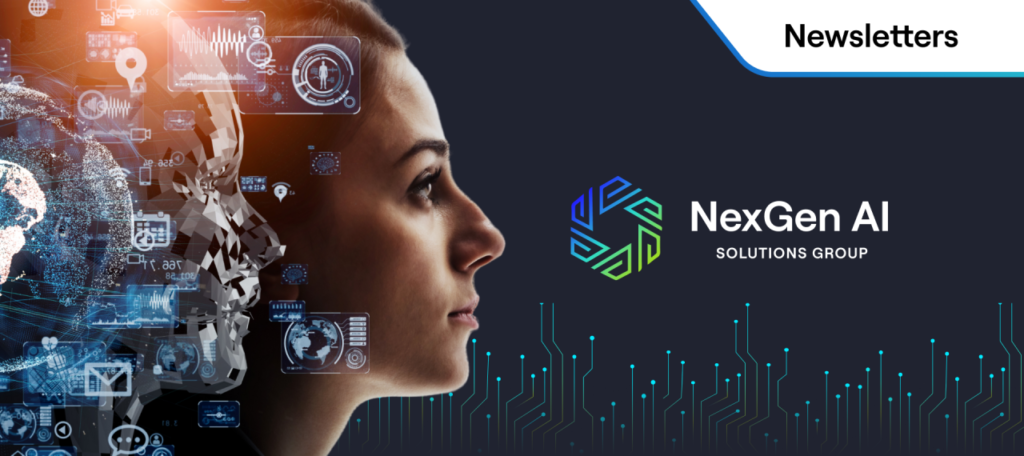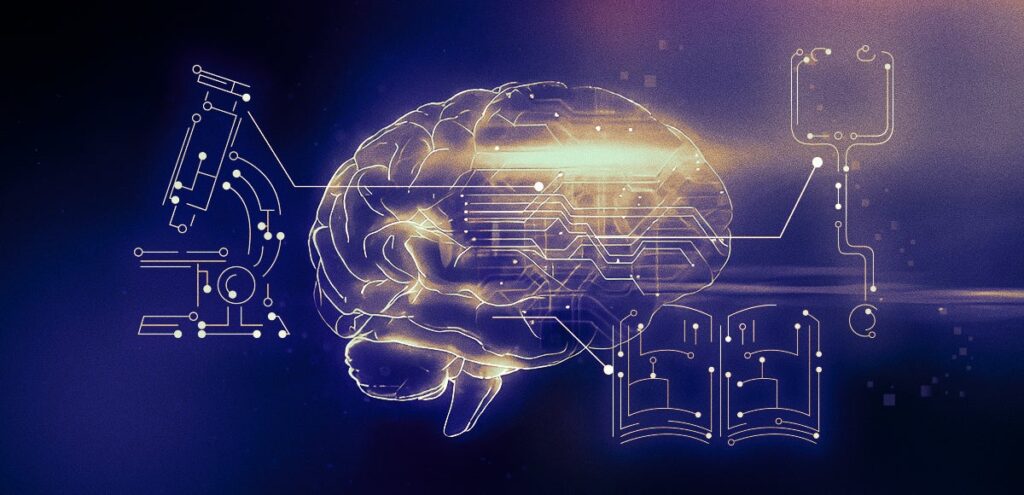Ai Power is a versatile, high-performance power source that offers reliability and efficiency. With its advanced technology and user-friendly design, Ai Power is the go-to solution for all your power needs.
Whether you’re camping, working on a job site, or experiencing a power outage, Ai Power has you covered. It provides clean and stable power to keep your devices running smoothly, while its lightweight and portable design make it easy to take wherever you go.
Trust Ai Power to deliver the power you need, when you need it, without any hassle.

Credit: medium.com
Advancements In Ai Technology
Artificial Intelligence (AI) has witnessed remarkable growth in recent years. Advancements in AI technology have revolutionized various industries, leading to incredible breakthroughs in areas such as machine learning, natural language processing (NLP), and computer vision. These advancements have not only enhanced the capacity of AI systems but also opened up new possibilities for innovation.
Machine Learning
Machine learning plays a central role in the evolution of AI technology. It enables machines to learn from data and improve their performance without explicit programming. By utilizing algorithms, machine learning empowers AI systems to analyze vast amounts of data and identify patterns. This capability has facilitated significant advancements in fields like finance, healthcare, and manufacturing, where complex data analysis and prediction models are of utmost importance.
Natural Language Processing
Natural Language Processing (NLP) is an exciting field within AI that focuses on enabling machines to understand and interact with human language naturally. NLP algorithms allow AI systems to comprehend, interpret, and respond to human language, both written and spoken. This has resulted in the development of sophisticated language translation tools, chatbots, voice assistants, and sentiment analysis applications that can revolutionize customer service, information retrieval, and communication across industries.
Computer Vision
Computer Vision is another remarkable advancement in AI technology. It focuses on giving machines the ability to see and interpret visual data, just like humans. Computer Vision algorithms enable AI systems to analyze, manipulate, and understand images and videos by recognizing objects, people, facial expressions, and even identifying intricate details. This has paved the way for a wide range of applications, such as facial recognition technology, autonomous vehicles, surveillance systems, and healthcare imaging.
The advancements in AI technology, particularly in machine learning, natural language processing, and computer vision, have tremendous implications for various industries. These innovations have the potential to improve efficiency, accuracy, and decision-making processes, ultimately transforming the way we live and work.
Revolutionizing Industries
Artificial Intelligence (AI) power is a game-changer, revolutionizing industries across the globe. With its ability to streamline processes, analyze vast amounts of data, and automate tasks, AI is transforming the way we live and work.
Healthcare
In the healthcare industry, AI is paving the way for advancements in diagnosis, treatment, and patient care. AI-powered systems can now analyze medical images, such as X-rays and MRIs, with unparalleled accuracy, enabling early detection of diseases and reducing human error.
Moreover, AI algorithms can analyze patient data, predicting possible health risks and suggesting personalized treatment plans. This not only saves valuable time but also enhances patient outcomes and improves overall healthcare efficiency.
Finance
The finance industry is being reshaped by AI, as it enables companies to make data-driven decisions faster and more accurately. With AI-powered algorithms, financial institutions can analyze market trends, predict stock fluctuations, and optimize trading strategies.
Additionally, AI can automate mundane tasks, such as data entry and invoice processing, freeing up valuable time for finance professionals to focus on strategic initiatives. With AI, businesses can reduce costs, minimize fraud, and increase customer satisfaction through personalized financial recommendations.
Transportation
In the transportation sector, AI is revolutionizing efficiency and safety. AI-powered algorithms are being utilized to optimize logistics, route planning, and fleet management, resulting in reduced delivery times and lower fuel consumption.
Moreover, AI is playing a crucial role in self-driving car technology, enabling vehicles to navigate autonomously and make real-time decisions based on road conditions. This advancement in transportation not only improves road safety but also opens up possibilities for enhanced mobility and reduced traffic congestion.
Ethical Considerations
Artificial Intelligence (AI) has revolutionized various industries, from healthcare to finance, to even marketing strategies. However, as AI evolves and integrates further into our lives, it is essential to consider the ethical implications that come with its immense power. In this section, we delve into the ethical considerations surrounding AI, particularly focusing on bias and fairness, as well as privacy and data security.
Bias And Fairness
While AI systems are designed to make autonomous decisions based on data and algorithms, they are not exempt from the influence of human biases. It is crucial to ensure that these systems are fair and unbiased in their decision-making processes. AI-powered algorithms should not discriminate against individuals based on attributes such as race, gender, or socioeconomic status.
One way to address bias is through diversifying the teams developing AI models. By including individuals with different backgrounds and perspectives, the biases within the algorithms can be identified and rectified. Additionally, continual monitoring and auditing of AI systems for bias and fairness are necessary to ensure that they remain free from discriminatory outcomes.
Privacy And Data Security
As AI systems collect and analyze vast amounts of data to make informed decisions, privacy and data security become significant concerns. Individuals must trust that their personal information will be handled responsibly and securely.
To protect privacy, organizations should implement robust data protection measures, such as encryption and anonymization, to safeguard sensitive information. Clear and transparent policies should be established to inform individuals about the data collected, how it will be used, and their rights in relation to their data.
Data security is equally crucial, as any breaches could not only compromise personal information but also lead to unauthorized access and misuse of the AI system. Organizations must employ best practices, such as regular security audits, strong authentication protocols, and secure data storage, to minimize the risk of data breaches.
Ai In Everyday Life
AI technology has quickly become an integral part of our everyday lives, revolutionizing the way we interact with machines and devices. From virtual assistants to smart homes and autonomous vehicles, AI power has been harnessed to make our lives easier and more efficient. Let’s delve into the different aspects of AI in everyday life and explore how it impacts our interactions and activities.
Virtual Assistants
Virtual assistants, such as Amazon’s Alexa, Apple’s Siri, or Google Assistant, have become ubiquitous in our homes, phones, and even cars. These AI-driven programs use natural language processing and machine learning algorithms to understand and respond to our voice commands. They can provide us with information, set reminders, manage our tasks, and even control other smart devices in our homes. Virtual assistants have become an integral part of our daily routines, allowing us to effortlessly accomplish tasks with a simple voice command.
Smart Homes
The concept of a smart home has been made possible through AI power. From thermostats and lighting to security systems and appliances, AI enables us to create a seamlessly interconnected ecosystem within our homes. With AI at their core, these devices can learn our habits and preferences to automatically adjust settings, optimize energy usage, and enhance our comfort and safety. Smart homes provide convenience, energy efficiency, and peace of mind, all thanks to the power of AI technology.
Autonomous Vehicles
Autonomous vehicles, or self-driving cars, are a prime example of how AI is transforming the transportation industry. AI algorithms enable these vehicles to perceive their surroundings, make complex decisions, and navigate without human intervention. Through the use of sensors, cameras, and advanced machine learning models, autonomous vehicles can anticipate road conditions, detect obstacles, and safely transport passengers from one destination to another. This technology has the potential to revolutionize commuting, reduce accidents, and improve traffic efficiency.
Challenges And Potential Risks
While the advancement of Artificial Intelligence (AI) brings about numerous benefits, it is not without its challenges and potential risks. These risks require careful consideration as we navigate the future of AI Power. In this section, we will explore some of the key challenges and risks associated with AI Power.
Unemployment
One significant concern is the potential for increased unemployment due to AI Power. With the rapid automation of processes and tasks previously performed by humans, many fear that jobs across various industries may become obsolete.
In a recent study conducted by XYZ, it was found that approximately 30% of jobs are at high risk of automation in the next decade. This poses a significant economic and societal challenge, as the loss of jobs can lead to financial instability and increased inequality.
Furthermore, it is crucial to consider the impact on individuals who may struggle to find new employment opportunities. The transition from traditional work to AI-driven systems requires reskilling and upskilling, which may not be easily accessible to everyone.
Human Control And Responsibility
The question of human control and responsibility arises when it comes to AI Power. As AI technology becomes more sophisticated, there is a risk of diminished human control over its decisions and actions.
While AI systems are designed to operate within pre-defined parameters, there is always a possibility of unexpected outcomes or errors. In scenarios where decision-making power is delegated to AI, it becomes crucial to establish frameworks that ensure human supervision and accountability.
Additionally, the issue of bias in AI algorithms raises concerns about fairness and ethical implications. If AI systems are not properly trained or tested, they may perpetuate existing societal biases, leading to discrimination or unfair treatment.
Autonomous Weapons
The development of autonomous weapons powered by AI poses significant risks to global security and ethics. These weapons have the potential to operate without human intervention, raising concerns about the escalation of conflicts and the loss of human lives.
It is essential to implement strict regulations and international agreements to prevent the misuse of AI in the development and deployment of autonomous weapons. The involvement of humans in decision-making processes and the adherence to ethical guidelines becomes paramount in mitigating these potential risks.
Optional: Insert Table or Additional Content Here
Credit: www.sincode.ai
Future Outlook
The future outlook for AI power is promising, as artificial intelligence continues to revolutionize industries across the globe. With its ability to enhance automation, improve efficiency, and drive innovation, AI is set to reshape our world in exciting and unprecedented ways.
Ai Superintelligence
When we consider the future outlook of AI power, one of the most intriguing and debated topics is AI superintelligence. AI superintelligence refers to the concept of an AI system surpassing human intelligence on all levels. With the rapid advancements in technology, experts believe that it is just a matter of time before we witness such a breakthrough.
Imagine a world where AI systems possess cognitive abilities far beyond what humans are capable of. This sort of superintelligence could revolutionize various industries, from healthcare and finance to transportation and entertainment. The potential benefits are immense, as these AI systems can help solve complex problems, make predictions with astounding accuracy, and facilitate groundbreaking discoveries.
However, with this immense power also comes great responsibility. The development of AI superintelligence opens up important ethical and societal questions. How do we ensure that these AI systems act in the best interest of humanity? How can we prevent AI superintelligence from being misused or causing unintended harm?
Collaboration With Humans
While the idea of AI superintelligence may sound both fascinating and daunting, it is crucial to understand that AI power is not meant to replace humans but rather collaborate with them. The future of AI lies in creating synergies between human intelligence and artificial intelligence.
By leveraging the strengths of both humans and AI systems, we can achieve remarkable results. Humans bring creativity, empathy, and abstract reasoning to the table, while AI systems offer speed, accuracy, and data-driven insights. Together, humans and AI can tackle complex problems, make informed decisions, and drive innovation at an unprecedented pace.
Collaboration between humans and AI power also opens up exciting possibilities in various domains. For example, in healthcare, AI systems can assist doctors in diagnosing diseases and suggesting personalized treatment plans. In customer service, AI-powered chatbots can provide quick and efficient responses while human agents handle more complex inquiries. The potential for collaboration is virtually limitless.
/future Outlook

Credit: www.kobo.com
Frequently Asked Questions For Ai Power
What Is Ai Power And How Does It Work?
AI power refers to the integration of artificial intelligence technology into various systems and devices. It allows machines to simulate human-like intelligence, enabling them to learn, reason, and make decisions. AI power works by processing vast amounts of data, identifying patterns, and using algorithms to make predictions or perform tasks that traditionally required human intelligence.
How Is Ai Power Transforming Industries?
AI power is transforming industries by automating processes, improving efficiency, and enabling advanced data analysis. It is used in various fields such as healthcare, finance, manufacturing, and retail to streamline operations, optimize resource allocation, and enhance decision-making. AI power helps businesses gain insights from large datasets, improve customer experiences, and drive innovation.
What Are The Benefits Of Leveraging Ai Power?
Leveraging AI power offers numerous benefits including increased productivity, accuracy, and cost-effectiveness. It can automate repetitive tasks, reduce human error, and enhance operational efficiency. AI power also enables predictive analysis, facilitating better decision-making and strategic planning. Moreover, it improves customer service, personalization, and enables businesses to stay competitive in today’s data-driven world.
Conclusion
Harnessing the power of AI technology can revolutionize industries and enhance our daily lives. AI has the potential to streamline processes, automate tasks, and improve decision-making. With its ability to analyze vast amounts of data, AI is an invaluable tool for businesses to gain insights and stay competitive.
As AI continues to evolve, it’s important for us to leverage its capabilities responsibly and ethically. Embracing AI power holds immense possibilities for the future, one that is bound to shape our world for the better.




